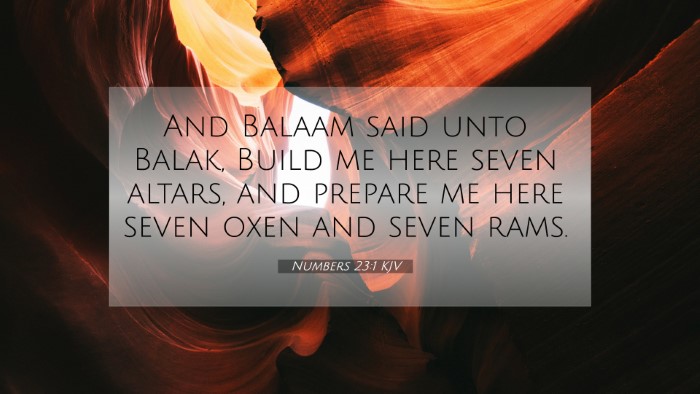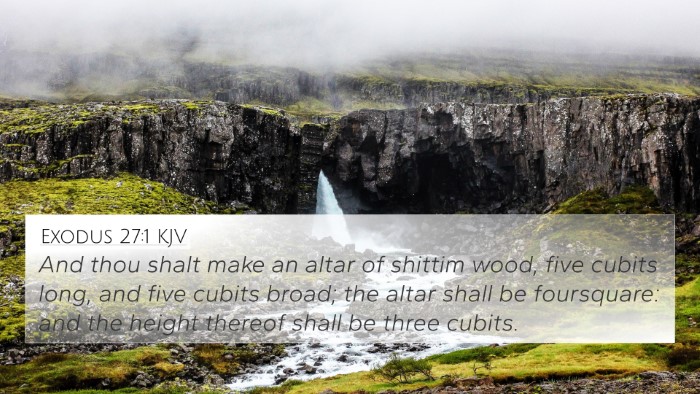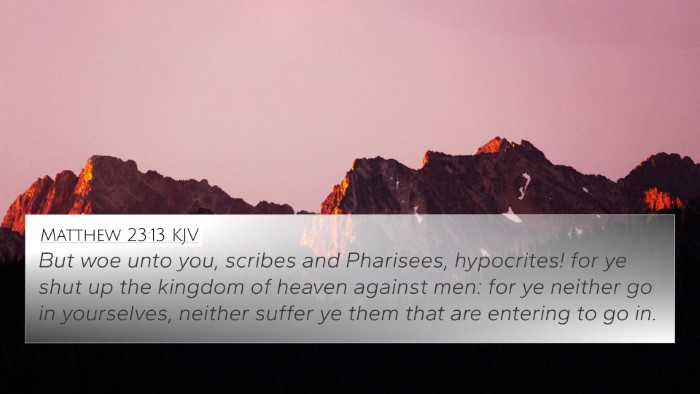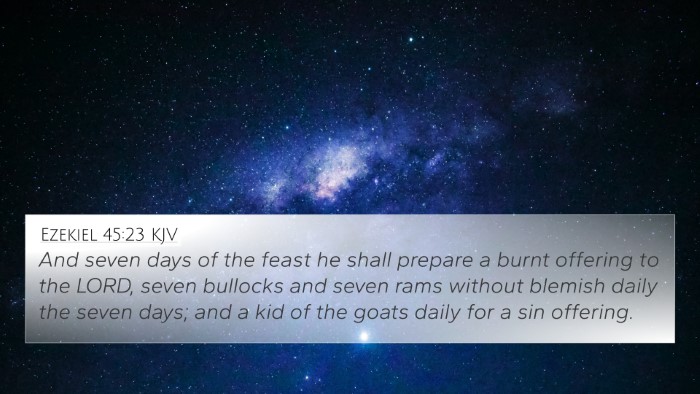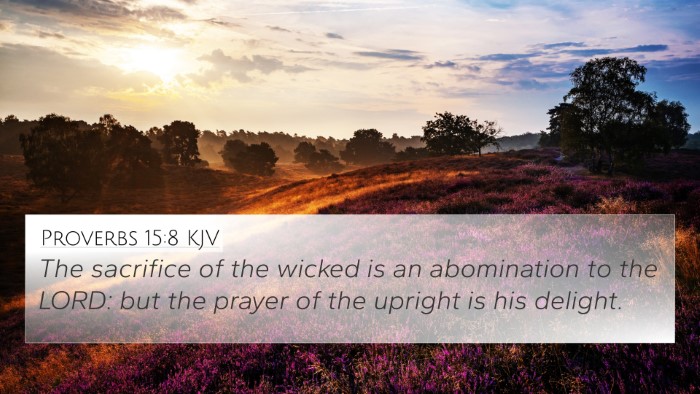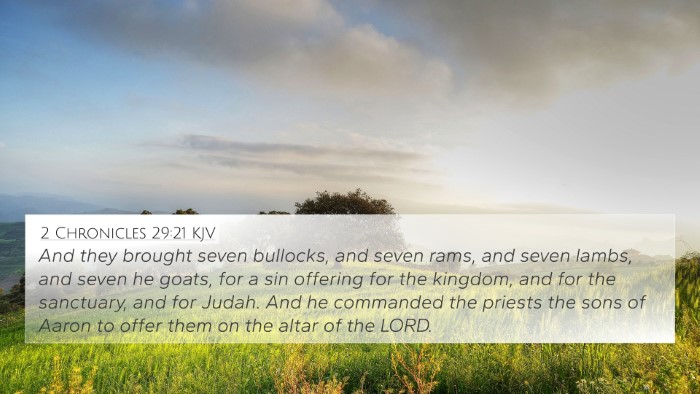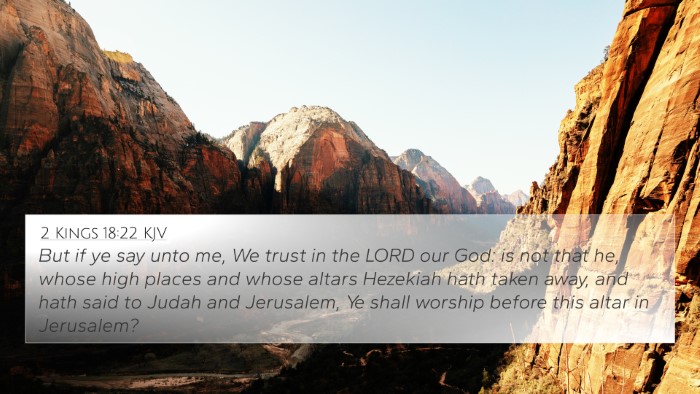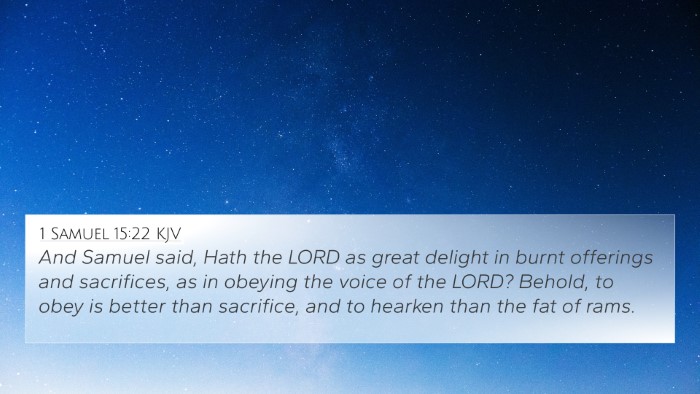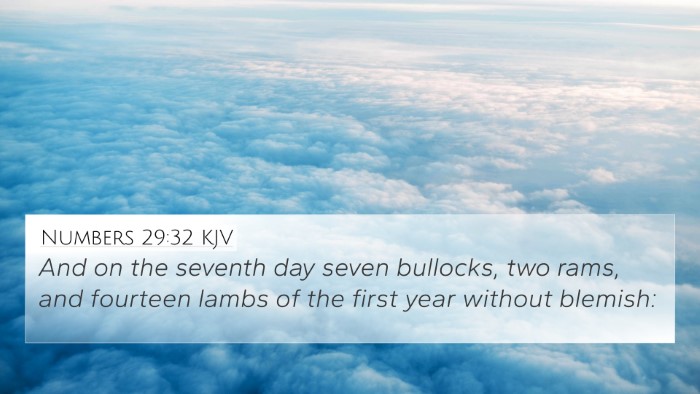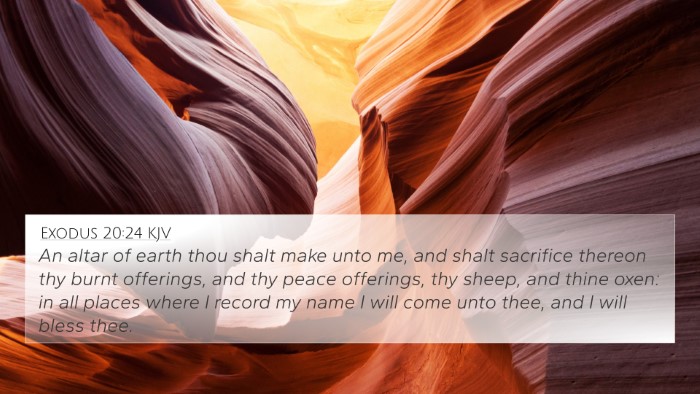Understanding Numbers 23:1
Verse Reference: Numbers 23:1 - "And Balaam said unto Balak, Build me here seven altars, and prepare me here seven oxen and seven rams."
Summary of the Verse
In this verse, Balaam, a prophet, instructs Balak, the king of Moab, to build seven altars and prepare offerings of seven oxen and seven rams. This act symbolizes Balaam's desire to invoke the favor of God in order to pronounce a blessing or curse on the Israelites, whom Balak fears.
Thematic Insights
Numerous public domain commentaries highlight key themes in this verse:
- Importance of Sacrifice: The seven altars and sacrificial animals reflect a deep acknowledgment of God's holiness and the necessity of atonement.
- Divine Consultation: Balaam seeks to consult with God, showing the practice of seeking divine guidance among ancient peoples.
- Symbolic Number: The number seven signifies completeness and perfection, suggesting that Balaam intended to fully devote himself to the process of seeking God’s will.
- Political Manipulation: The verse also underscores the efforts of kings and prophets in their political agendas, showing how religion and politics often intertwined.
Commentary Insights
From various commentaries, we derive deeper insights into the complexities of Balaam's actions:
Matthew Henry: He emphasizes that Balaam's offerings were a form of divination. Despite the grand display of devotion, Balaam's heart was not entirely aligned with God's will.
Albert Barnes: Barnes notes the significance of the altars as a traditional means to present offerings to deities. He points out that the preparation of seven animals was uncommon and served as a method to gain divine attention.
Adam Clarke: Clarke discusses the cultural context of these sacrifices, explaining how such actions were typical in ancient Near Eastern rituals. He suggests that Balaam’s choice of animals reflects strategic planning intended to sway God’s favor.
Cross-References to Numbers 23:1
This verse can be linked to several other scriptures that enhance our understanding:
- Genesis 12:3 - God's promise to Abraham that those who bless him will be blessed, underscoring the importance of seeking blessings for Israel.
- Exodus 22:28 - Provides insights into the treatment of prophets in Israel, highlighting the reverence and caution that should accompany prophetic words.
- Leviticus 1:4 - Discusses the process of atonement through sacrifices, relevant to the sacrificial acts Balaam proposes.
- Deuteronomy 23:3 - Delivers a warning against Moabites and their hostile intentions towards Israel, setting context for Balak's actions.
- 1 Peter 2:9 - Identifies the New Testament perspective on God's chosen people, related to the blessings Balaam seeks to pronounce.
- Romans 11:1-2 - Speaks to God's ongoing covenant with Israel which is significant when considering Balaam's desires.
- Revelation 2:14 - Provides a New Testament commentary on Balaam’s character and his willingness to betray God for profit.
Connecting Themes Across the Bible
Analyzing Numbers 23:1 reveals numerous cross-referenced themes which include:
- Covenant Relationships: The covenant between God and Israel is paramount throughout Scripture, with implications seen from Genesis to Revelation.
- Consequences of Disobedience: Balaam’s story serves as a cautionary tale echoed in the New Testament about maintaining fidelity to God’s commands.
- Prophecy and Divine Will: The interaction between human intentions and divine purpose is a recurring theme, linking Balaam's actions with broader prophetic events.
Tools for Further Study
To explore the connections within Scripture, consider utilizing:
- Bible Concordance: Facilitates finding verses and themes across different books of the Bible.
- Bible Cross-Reference Guide: Identifies thematic and contextual links between verses.
- Comprehensive Bible Cross-Reference Materials: Essential for in-depth study and sermon preparation.
- Bible Chain References: Organizes verses in a logical sequence based on thematic connections.
Conclusion
Numbers 23:1 provides a rich tapestry for understanding both historical context and theological implications. It invites readers to engage with the text through cross-referencing and thematic exploration, fostering a deeper appreciation for the interconnected nature of the Scriptures.


